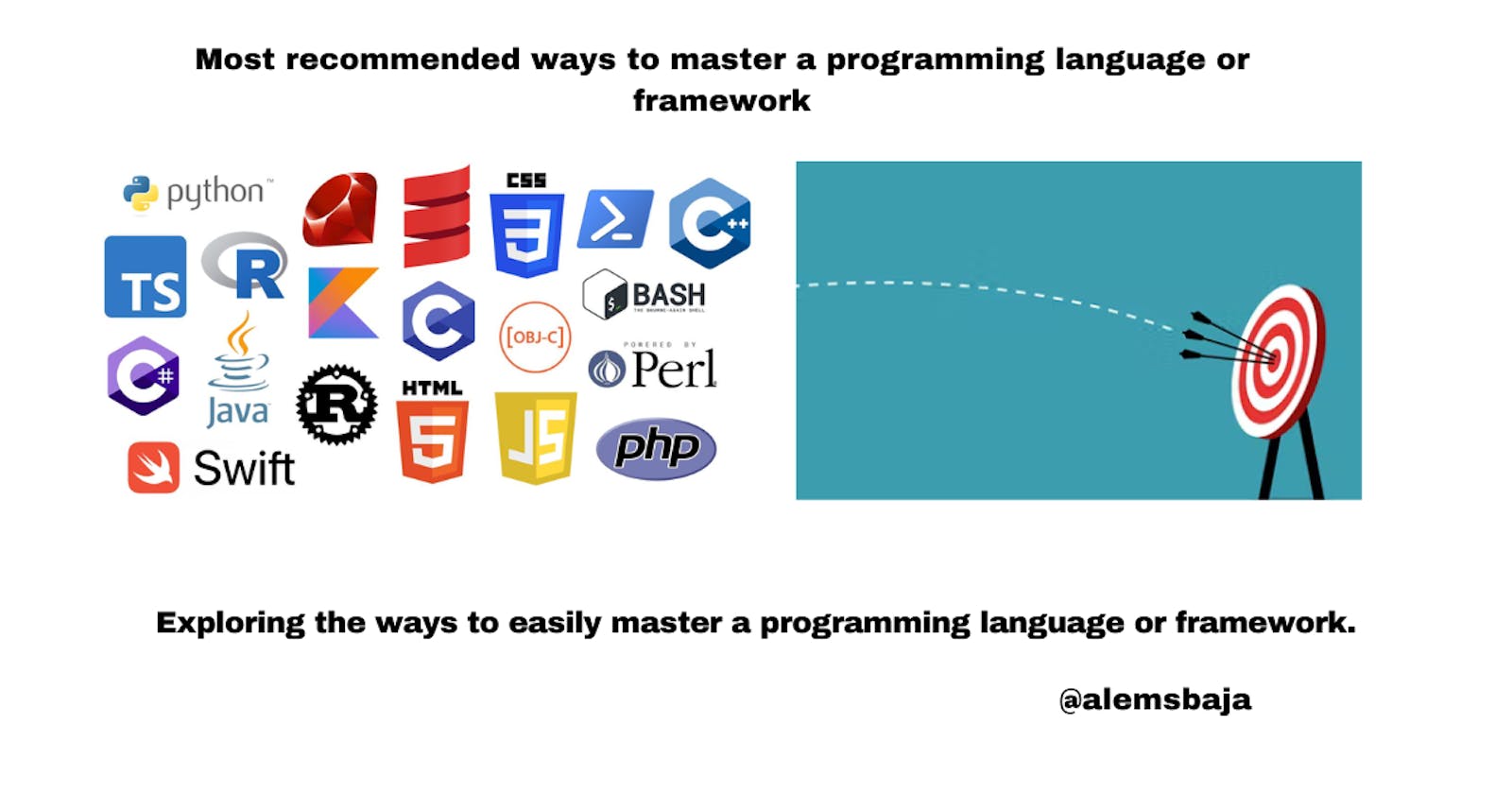Most recommended ways to master a programming language or framework
Exploring the ways to easily master a programming language or framework.
Table of contents
No headings in the article.
In this article, we'll be looking at the most recommended ways for mastering a programming language or framework.
Master: possessing or displaying exceptional skill or ability.
Programming Language: a language used in programming ( writing a program that performs a task).
Framework: a solution built on top of a language to make software development easier, faster and provide some core functionalities and solutions to issues out of the box.
Gaining mastery in a programming language isn't the same as perfection but rather a way to become great at using it to solve problems.
Programming languages in themselves aren't void of errors or loopholes which is one of the major reasons they're been published in different versions for its fix.
Pretty sure that some of these points will be best suitable for your pathway to becoming exceptionally good if not all of them.
Start with interest
This is key to beginners or when starting out in learning a new language it's easier to learn when there's interest. If there isn't in a case where it's a requirement from your team or in a project you can develop interest to learn it.
Learning without interest can make it challenging and inconvenient to comprehend. The more your interest the more you'll love to spend time researching and applying the concepts learnt.
Explore and identify what option works for you to learn something(new or old).
Take out some time to figure out what method of learning works best for you and make use of it.
Some developers prefer reading the documentation while others prefer to watch a video tutorial or read a book about the language in view.
Worthy of note also is the format that enhances assimilation in reading either in electronic or printed copy. If you find both printed and electronic materials easy to understand that's absolutely fine also.
Make use of resources that you can easily understand
With the vast amount of resources available on the internet for each of these technologies it is important to identify and make use of the resources that best explains it to you personally after identifying the format.
Start with the basics
It's one step at a time. Acquisition of knowledge on a subject matter has to be progressive in order to understand it properly.
It's important to follow the language from the start ( introduction, concept, key terms, architecture, solutions, objective etc...) before diving into deeper concepts. Learning a programming language is a lifetime activity (it's progressive). For example learning about data type declarations, variables, functions, constant, reserved keywords etc.. The more you know the more there's to unknow to know.
Start with one language
Multi-tasking learning a new language can make understanding concepts quite difficult because sometimes their methods of implementation might vary. Although in some cases there are languages that can be learnt together the ideal thing in such case is to prioritize one as a major focus to concretize the understanding.
Start with simple exercises
When starting out in a language try out a simple block of codes. Programs are basically made up of lines and blocks of codes. For example, output, learning how to perform the basic arithmetic calculations, conditional statements.
Practice
Keep using that language to build solutions. 😁
Practising makes people become better at what they do. Proficiency is parallel to consistency in practice.
Read source codes
Check on versioning control tools such as GitHub, Bitbucket, Gitlab to download open source codes and see how several logic is implemented and structured.
Another way around this is to execute the program on your local machine it reinforces the art of building programs and exposes you to new bugs to solve. 😁
Build innovative and creative solutions (real-life application)
Build solutions that are applicable to real-life challenges. After following examples, building clone projects the next step to mastering is to build a solution from scratch.
Ask for code reviews
Tell someone (junior, intermediate or senior) to review your code it makes one become better because there are many ways to optimizing codes. Moreso it brings the opportunity of making your codes more readable.
Patience
Becoming better in a skill takes time. Be patient with the process. A senior developer you so much admire was once a novice. It might be tough to grasp a concept at the moment but don't allow it to discourage you. I later understood an inbuilt function after using it in building applications.
Discuss with other programmers or join a tech group
Join tech communities, ask questions, engage in technical conversations and try to solve or share an idea to a bug from other developers, while sharing your challenges too.
Write articles or document functions
Share your learning no matter how small it may look to you it means a lot to someone else. Most times I end up going over an implementation I published as an article. Publishing articles is both beneficial to you and the tech community. You could also use gist to document functions or logical implementations.
Finally, becoming great at displaying the use of a skill in solving problems using technology is key and this is why the points above are mentioned. I personally suggest you stick to the points that works best for you.
See you at the top 🌍
If you find this article useful please kindly share it with your network and feel free to use the comment section for questions, answers, and contributions.
